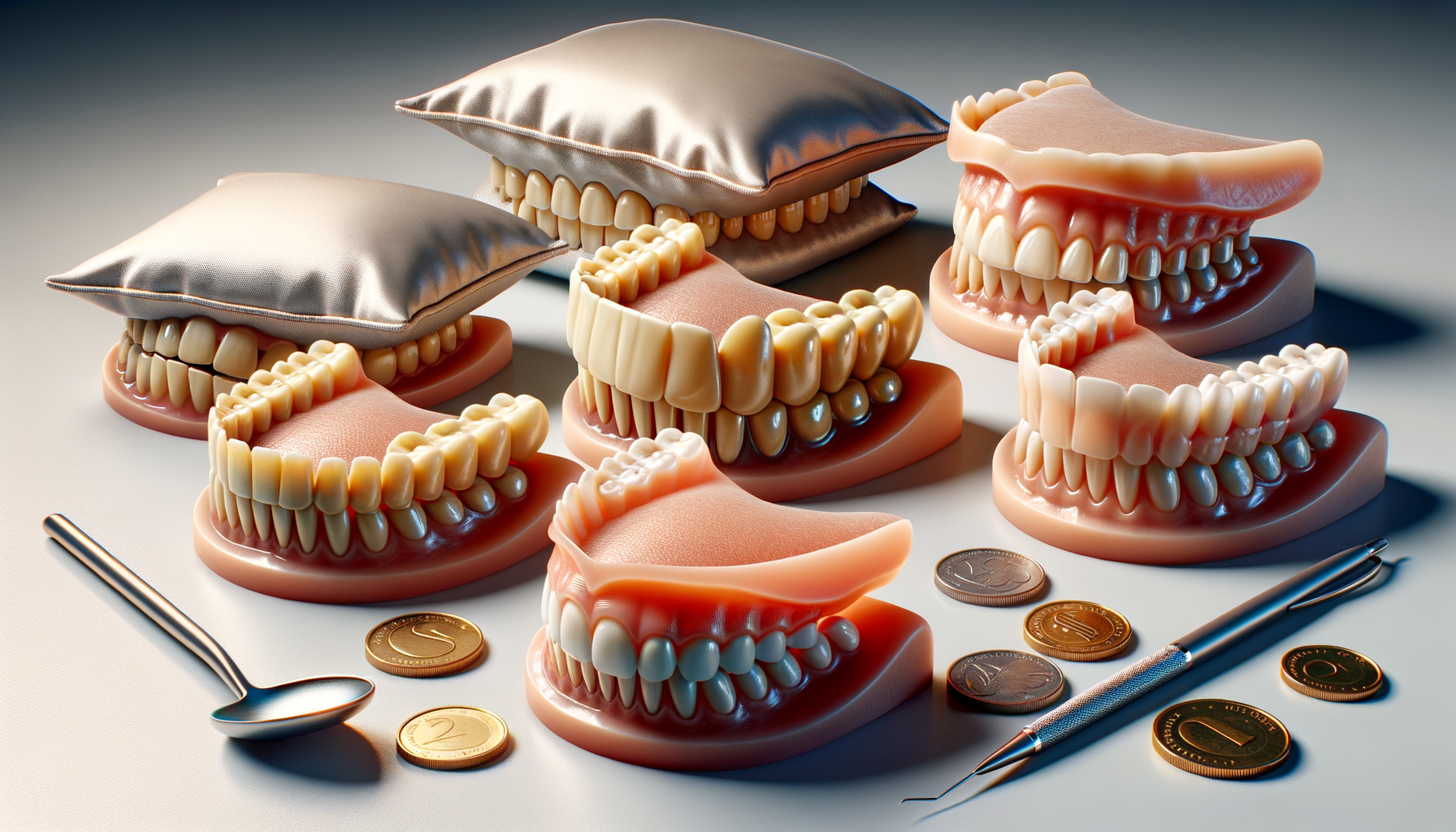Understanding the Different Types of Dentures
Dentures have evolved significantly over the years, offering a variety of options tailored to meet individual needs. The primary types include complete dentures, partial dentures, and implant-supported dentures. Complete dentures are used when all teeth are missing, while partial dentures are suitable for those who still have some natural teeth. Implant-supported dentures, on the other hand, provide additional stability by anchoring to dental implants.
Complete dentures, often made from acrylic, rest directly on the gums and are custom-fitted to the mouth. They are a practical choice for individuals who have lost all their teeth, offering a full set of artificial teeth that restore function and aesthetics. Partial dentures are typically constructed from a combination of metal and acrylic, designed to fill the gaps left by missing teeth. They are held in place by clasps that attach to the remaining natural teeth, making them a versatile option for many.
Implant-supported dentures are gaining popularity due to their enhanced stability and comfort. These dentures are anchored to titanium implants that are surgically placed into the jawbone. This option is ideal for those who seek a more permanent solution and have sufficient bone density to support the implants. Each type of denture offers unique benefits, and the choice largely depends on individual needs and preferences.
Factors to Consider When Choosing Dentures
When selecting dentures, several factors come into play, including comfort, aesthetics, and cost. Comfort is paramount, as ill-fitting dentures can lead to sore spots and difficulty in speaking or eating. It is crucial to work closely with a dental professional to ensure a precise fit that accommodates the contours of the mouth.
Aesthetics also play a significant role in the decision-making process. Modern dentures are designed to look natural, with options for customizing the shape, size, and color of the teeth to match individual preferences. This attention to detail helps in achieving a natural appearance, boosting confidence and self-esteem.
Cost is another important consideration. Dentures can vary widely in price depending on the materials used and the complexity of the design. It is essential to discuss budget constraints with a dentist, who can provide guidance on affordable options that do not compromise on quality. Additionally, many dental insurance plans offer partial coverage for dentures, making them more accessible to a broader audience.
Maintenance and Care for Long-lasting Dentures
Proper maintenance and care are crucial for extending the lifespan of dentures and ensuring optimal oral health. Dentures should be cleaned daily to remove food particles and plaque, preventing stains and bad breath. A soft-bristled brush and non-abrasive denture cleanser are recommended for this task.
It is also important to handle dentures with care to avoid damage. When not in use, dentures should be soaked in a denture cleaning solution or water to maintain their shape and prevent drying out. Regular dental check-ups are essential to monitor the fit of the dentures and make necessary adjustments, ensuring continued comfort and functionality.
In addition to routine cleaning, users should be cautious about avoiding hard or sticky foods that can damage dentures. If any issues arise, such as discomfort or changes in fit, it is advisable to consult a dental professional promptly. With proper care, dentures can provide a reliable solution for many years.
Comparing Dentures with Other Tooth Replacement Options
While dentures are a popular choice for tooth replacement, other options are available, such as dental bridges and implants. Each of these solutions has its advantages and limitations, making it essential to consider individual needs when making a decision.
Dental bridges are fixed appliances that fill the gap left by missing teeth, anchored to adjacent healthy teeth. They offer a more permanent solution than removable dentures, but they require altering the natural teeth that support them. Bridges are suitable for individuals with one or a few missing teeth and provide a natural appearance and feel.
Dental implants, on the other hand, offer the most permanent solution by replacing the tooth root with a titanium post, onto which a crown is placed. Implants provide excellent stability and mimic the function of natural teeth. However, they require sufficient bone density and a more invasive procedure, which may not be suitable for everyone.
Ultimately, the choice between dentures, bridges, and implants depends on factors such as oral health, budget, and personal preferences. Consulting with a dental professional can help in making an informed decision that aligns with individual needs.
Exploring Economical Options for Dentures
For many, the cost of dentures can be a significant concern. However, there are ways to make dentures more affordable without compromising on quality. One approach is to explore different materials, as some options, such as acrylic, tend to be less expensive than others like porcelain.
Another strategy is to consider dental schools, where supervised students provide dental care at reduced rates. This option not only offers savings but also supports the education of future dental professionals. Additionally, some dental clinics offer payment plans or financing options to ease the financial burden.
It is also worth investigating insurance coverage, as many plans include benefits for dentures. Understanding the extent of coverage and any potential out-of-pocket expenses can help in budgeting for this important investment in oral health.
By exploring these economical options, individuals can find dentures that fit their financial situation while still providing the comfort and functionality they need.












